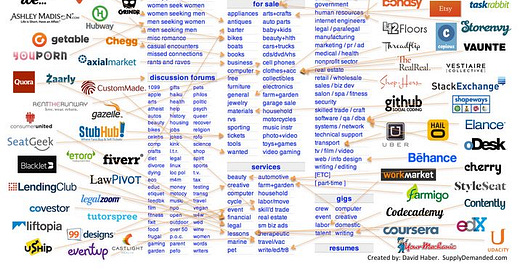First, some news: Sunday Scaries is now Lindy Letters!
About the name: Lindy refers to the Lindy effect (or “Lindy’s Law”), a way of identifying useful ideas based on how long they’ve been around. The term “Lindy” comes from a specific deli in New York, where actors used to spend time talking about the likelihood that their shows would make it past a single season. Over time, they discovered an interesting fact: the longer a show was on the air, the longer it could be expected to remain so in the future. Unlike living things, whose survival chances decrease over time, certain non-perishable goods like ideas tend to get stronger with each passing year.
Thus, the Lindy effect. I make an effort to only post ideas that have a reasonable chance of being relevant 10, 100, or 1,000 years into the future. Less focus on the current news of the day, and more on finding great ideas from old books.
The old URL will still work (sundayscaries.substack.com), as will our new home at lindyletters.com.
The change comes after a helpful nudge from the folks at 1729.com, who prompted me to purchase a domain in order to qualify for their newsletter task. I’m happy to say that Lindy Letters was selected as a winner — you can see the other winners at the link above.
For now, nothing else will change about the format. I’m still focused on finding underrated ideas from books and articles that have stood the test of time. Eventually, I may split out my personal essays from the weekly link roundup, but for now, I plan to keep both publications at the same domain.
In this week’s edition
The paper that kicked off the CRISPR revolution (2012)
I’m currently reading The Code Breaker, a fantastic biography of Jennifer Doudna and the team who created CRISPR. This paper, published in 2012 by Doudna and Charpentier’s team, outlined the specific molecular interactions that enable clustered regularly interspaced short palindromic repeats (CRISPR) to function.
CRISPR was first discovered in bacteria as a biological defense system against viruses. Since then, it’s become the center of a biotechnology revolution. Millions of dollars of funding have flowed into labs and companies who are working to apply the technology. Today, therapeutics using CRISPR have been created to treat and diagnose diseases ranging from sickle-cell anemia to COVID-19.
CRISPR feels like the early days of the computer revolution. This paper is like reading Von Neumann’s computer architecture paper in 1950 — incredibly powerful, but still immature in its implementation.
Bundling and unbundling (2014)
Jim Barksdale famously said:
Gentlemen, there’s only two ways I know of to make money: bundling and unbundling.
Here’s unbundling explained, in one photo:
If you’re looking to learn more, a16z has a great article on the topic.
They’re made out of meat (1991)
This short science fiction story is a great take on humanity from the perspective of another intelligent life form. It’s funny and incisive — especially during a time when interest in aliens is at an all-time high.
"Yes, thinking meat! Conscious meat! Loving meat. Dreaming meat. The meat is the whole deal! Are you getting the picture?"
Worth a read if you have a few minutes today.
Have a great week,
Phil




